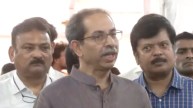With the Supreme Court setting timelines for the presidents and governors to act on bills sent by state assemblies, President Droupadi Murmu has exercised a rare constitutional provision by sending 14 questions. The questions are related to settling the law on whether the president and governors need to follow timelines to decide on state bills referred for consent when the Constitution does not prescribe it.
Under Article 201, a clear timeline has been set, requiring the President to decide within three months on any bill forwarded by a Governor. If there is a delay beyond this period, the President’s office must provide reasons to the concerned state government. Additionally, if a Governor believes that a bill is unconstitutional, he can refer it to the President. In such cases, the President is expected to seek the Supreme Court’s advisory opinion under Article 143 of the Constitution.
14 Questions Raised By The President
- What are the constitutional options before a Governor when a Bill is presented under Article 200 of the Constitution of India?
- Is the Governor bound by the aid & advice tendered by the Council of Ministers while exercising all options available with him when a Bill is presented before him under Article 200 of the Constitution of India?
- Is the exercise of constitutional discretion by the Governor under Article 200 of the Constitution of India justiciable?
- Is Article 361 of the Constitution of India an absolute bar to judicial review in relation to the actions of a Governor under Article 200 of the Constitution of India?
- In the absence of a constitutionally prescribed time limit and the manner of exercise of powers by the Governor, can timelines be imposed and the manner of exercise be prescribed through judicial orders for the exercise of all powers under Article 200 of the Constitution of India by the Governor?
- Is the exercise of constitutional discretion by the President under Article 201 of the Constitution of India justiciable?
- In the absence of a constitutionally prescribed timeline and the manner of exercise of powers by the President, can timelines be imposed and the manner of exercise be prescribed through judicial orders for the exercise of discretion by the President under Article 201 of the Constitution of India?
- In light of the constitutional scheme governing the powers of the President, is the President required to seek advice of the Supreme Court by way of a reference under Article 143 of the Constitution of India and take the opinion of the Supreme Court when the Governor reserves a Bill for the President’s assent or otherwise?
- Are the decisions of the Governor and the President under Article 200 and Article 201 of the Constitution of India, respectively, justiciable at a stage anterior into the law coming into force? Is it permissible for the Courts to undertake judicial adjudication over the contents of a Bill, in any manner, before it becomes law?
- Can the exercise of constitutional powers and the orders of/by the President / Governor be substituted in any manner under Article 142 of the Constitution of India?
- Is a law made by the State legislature a law in force without the assent of the Governor granted under Article 200 of the Constitution of India?
- In view of the proviso to Article 145(3) of the Constitution of India, is it not mandatory for any bench of this Hon’ble Court to first decide as to whether the question involved in the proceedings before it is of such a nature which involves substantial questions of law as to the interpretation of constitution and to refer it to a bench of minimum five Judges?
- 13. Do the powers of the Supreme Court under Article 142 of the Constitution of India limited to matters of procedural law or Article 142 of the Constitution of India extends to issuingdirections /passing orders which are contrary to or inconsistent with existing substantive or procedural provisions of the Constitution or law in force?
- 14. Does the Constitution bar any other jurisdiction of the Supreme Court to resolve disputes between the Union Government and the State Governments except by way of a suit under Article 131 of the Constitution of India?
President Murmu pointed out that Article 200 of the Constitution outlines the powers of the Governor, including the procedures for assenting to bills, withholding assent, and reserving bills for the President’s consideration. However, she emphasized that this article does not specify any time frame within which the Governor must exercise these constitutional options. In other words, there is no set deadline for the Governor to act on the bills.
The Context
The President sought the Supreme Court’s advice following its recent decision that set clear timelines for the Governor and the President to act on bills sent by the government for their assent. This ruling was delivered by the top court on April 8. The top court said that “in case of any delay beyond this period, appropriate reasons would have to be recorded and conveyed” to the state concerned.
The Supreme Court’s April 8 judgment came in response to a petition filed by the Tamil Nadu government, challenging the Governor’s decision to withhold consent on 10 bills. These bills were initially returned by the Governor, but the state legislature passed them again in the exact same form. Instead of taking a decision, the Governor referred the bills to the President, even as the matter was already under consideration by the Supreme Court. This raised concerns about delays and the constitutional responsibilities of the Governor’s office.
The issue of Governors delaying action on bills sent by state governments is currently being challenged in the Supreme Court through a petition filed by the Kerala government. Similar concerns have also been raised in the past by the states of Telangana and Punjab. As multiple states are facing the same problem, the reference being considered by the top court has gained significant importance. The outcome of this case could set a crucial precedent for how Governors are expected to handle bills forwarded by elected state legislatures.












